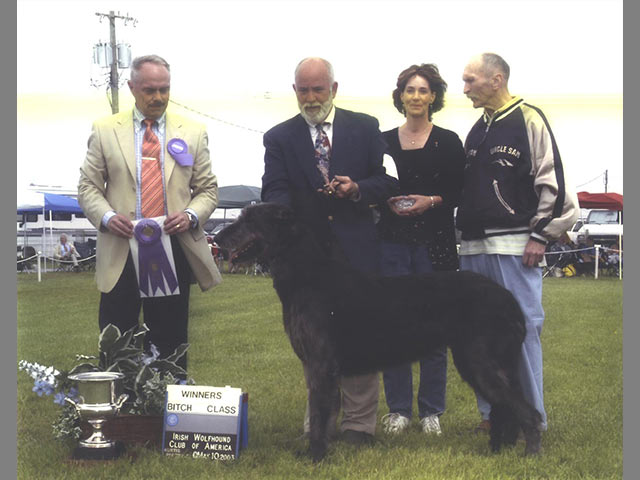Decades Judging Dogs and People

Younger people, he says, should "go to libraries, and start your own library of your breed." They should also should spend time meeting with long-time fanciers, he urges, "especially those who don't agree with you, so you have more than one opinion about your breed." Judy Mapes says people need to learn how to accept criticism. "If it's valid, it makes you better at breeding and exhibiting." Polly Smith, a fifty-something with over 20 years experience as a multi-breed judge, says "Too often, if people aren't winning in a breed, they just switch to another one." This, she feels, is due to a lack of patience and unrealistic expectations about how long it takes to win. Breeders and exhibitors should pick a breed, she says, and devote themselves to deep knowledge about that breed.
Judy Mapes says too many people miss out on one of the best learning opportunities—seeing an entire dog show. "Sometimes, people show a dog. Then you ask them who won best in show, and they don't know, because they left after they lost their class." This, she says, is both unsportsmanlike, and it prevents younger breeders and exhibitors from understanding why a dog wins. Polly Smith agrees, adding with emphasis, "Often, people lose in the puppy class, then slam their dog into the crate, muttering under their breath. They aren't bothering to see what different judges are looking for."
In recent years, the number of dog shows has increased several fold, which may be contributing to a decline in exhibitor patience. With so many dog shows, Judy Mapes says, "It is very difficult for the person who wants to have a winning dog, because of the time it takes to maintain the rankings and attend shows to hold those rankings." Lester Mapes, who is 68, has been judging since 1971, including best in group at Westminster. He agrees with Judy Mapes, his wife, about the explosion in the number of shows, but his feelings are mixed. "People have a wider choice about where they want to go for shows. You can go to small shows and see a bunch of quality dogs." But with so many shows, Mr. Mapes says, exhibitors are strategizing about which ones to attend. "Someone can say, 'I know dog X is going to be over there, so I can sneak out to Idaho and pick up a best in show.'" Polly Smith puts it more bluntly: "Too many top dogs run scared of each other. They don't want to compete together, except at Westminster where they have to. They scatter and take the easy ground."
No matter how many years they are at it, judges are ready to tell you how much they love their sport. Lester Mapes says that his energy comes from "the simple exhilaration of looking at a really fine animal." Polly Smith says that what keeps her coming back into the ring year after year is "the idea that a puppy will come in and give me goose bumps. You're always looking for a dog that makes you say, 'That's what I really want to see.' It happens enough to keep you excited."
